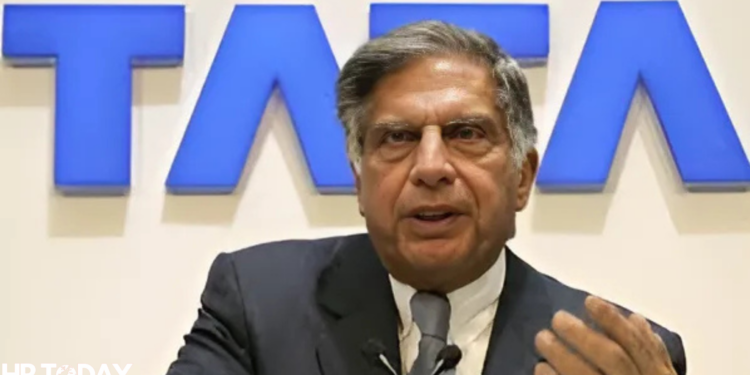Mumbai, Maharashtra, India – October 9, 2024 – India and the world are mourning the loss of Ratan Tata, one of the most respected industrialists and philanthropists, who passed away at the age of 86. His death marks the end of an era in Indian business, as he was not only the driving force behind the meteoric rise of the Tata Group, but also a global figure in corporate ethics and philanthropy. Ratan Tata’s visionary leadership, human compassion, and unwavering integrity have left a legacy that will inspire generations to come.
Born in 1937, Ratan Tata was a member of one of India’s most iconic industrial families. He joined the Tata Group in 1962, initially working on the shop floor of Tata Steel, before eventually rising to become Chairman of Tata Sons in 1991. His leadership came at a pivotal time for the conglomerate, as he succeeded J.R.D. Tata and ushered the group into a new era of globalization and modernization. Under his stewardship, the Tata Group expanded its global footprint, acquiring renowned international brands like Tetley, Jaguar Land Rover, and Corus Steel, propelling the group onto the world stage.



Ratan Tata was not only an outstanding businessman but also a champion of innovation and affordability. One of his most notable contributions to Indian society was the launch of the Tata Nano, an affordable car designed to provide middle-class Indian families with accessible transportation. Although the Nano did not achieve long-term commercial success, its creation demonstrated Tata’s forward-thinking approach and his desire to cater to the needs of India’s emerging middle class. His focus on technology and innovation continues to drive the group’s operations in sectors like automotive, steel, technology, and telecommunications.
Beyond the boardroom, Ratan Tata’s heart lay in philanthropy. As the chairman of Tata Trusts, he oversaw significant contributions to healthcare, education, and rural development. The Tata Trusts, one of India’s oldest philanthropic organizations, have supported a range of initiatives from building cancer hospitals and research institutions to advancing rural education. Tata was deeply invested in improving the well-being of people, particularly in underserved communities, and he believed in creating long-term societal change through strategic philanthropy.



Internationally, Tata’s voice held immense weight in global business and ethics. He was a staunch advocate for corporate responsibility and maintained a reputation for upholding integrity and values in business dealings. During his leadership, the Tata Group became known not just for its financial performance but also for its ethical practices and social consciousness. Ratan Tata’s personal ethos of humility and ethical leadership helped solidify India’s reputation as a business powerhouse, while also showing the world that success and compassion are not mutually exclusive.
Even after his retirement as chairman of Tata Sons in 2012, Ratan Tata’s influence remained immense. He continued to mentor young entrepreneurs and invested in a range of startups, showing a keen interest in the future of India’s technology and startup ecosystem. His investments in companies like Snapdeal and Paytm reflected his belief in the potential of India’s young entrepreneurs to drive future growth. His guidance was instrumental in shaping the next generation of Indian business leaders.



In recognition of his contribution to India and the world, Ratan Tata received numerous accolades, including the Padma Vibhushan, India’s second-highest civilian honor. His legacy, however, will not be measured by awards but by the transformative impact he had on the Tata Group, the Indian economy, and global business ethics. Ratan Tata’s passing marks the end of an era, but his vision for a better, more compassionate world will continue to inspire future generations.
With Ratan Tata’s death, India and the global business community have lost not just a towering industrialist but a humanitarian who believed in the power of business to create positive social change. His life’s work will forever be a guiding beacon for businesses aiming to integrate profit with purpose.
Read Also : Imagination in a Disrupted Age: Navigating the Future with Curiosity and Empathy










